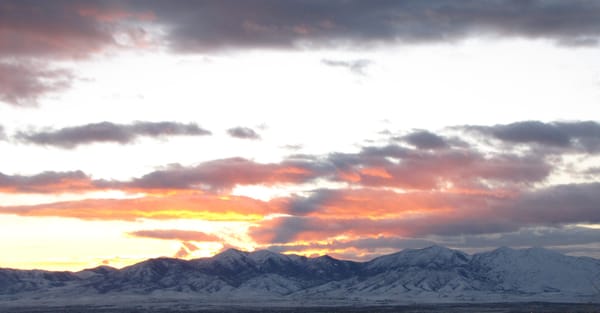Is anyone else a little dizzy...?
The cultural landscape of modern America is characterized by uncertainty. In my deepest analytical conversations exploring politics, faith, technology, and the future, someone always ends up crying. Someone always says “I don’t know,” with an air of finality. I don’t know either. Nobody seems to know, and the old oracles—the watchers on the hill, the ancients with the gift to be see-ers—appear to have abandoned us… or worse, they’ve become sell-outs. Traditional epistemology has failed us.
Basic concepts like “law” and “democracy” no longer have clear meanings, if they ever did; they’ve become slippery. When we talk about important core principles, there’s little for us to grab onto. Whatever precious language has not already been co-opted by seedy rhetoricians appears to have been commandeered by internet trolls or clickbait artists. Dickens was prescient on this (or more likely, simply observant):
“It was the best of times, it was the worst of times, it was the age of
wisdom, it was the age of foolishness, it was the epoch of belief, it
was the epoch of incredulity, it was the season of Light, it was the
season of Darkness, it was the spring of hope, it was the winter of
despair, we had everything before us, we had nothing before us, we were
all going direct to Heaven, we were all going direct the other way--in
short, the period was so far like the present period, that some of its
noisiest authorities insisted on its being received, for good or for
evil, in the superlative degree of comparison only.”
—Charles Dickens, A Tale of Two Cities
American discourse in the 2020s oscillates aggressively in this manner. What’s worse, my mental health goes likewise: I ride a carousel between winter and spring. Occasionally, I lean from the stirrups of my ceramic unicorn and witness a display of human joy so simple and profound that I am moved to tears. I smell cotton candy and hear the laughter of children who have not yet become lost to their parents. When the carousel comes round, the children transform into tired carnival workers on starvation wages; the aroma of sugar gives way to the fecal rot of approaching death. All of this motion makes me both unaccountable and dizzy, and my most persistent hope is that when I vomit, the chunks of my breakfast will land on the side of the carousel already polluted.
This is no way to live. Yet it is, increasingly, the prevalent way to live.
Older generations of Americans found a way to resolve their uncertainty. Near as I can tell, they unmounted from their carousel ponies and walked counter-clockwise so they had a good view of the sunny side at all times. In doing so, they unhorsed many others who were subsequently forced to remain in the dark, which did not seem to bother the sunshine enjoyers one bit. It was an unsustainable, cowardly, and morally repugnant solution… and on top of that, it wasn’t really a solution at all, since the carousel still spins and the tangle of bodies on the miserable side is getting larger. If my mount passes a rich old wretch who persists in walking backwards, I pray that I happen to be holding a lance.
I don’t have a good solution for uncertainty or for the wobbling, destabilizing discourse that it prompts. I don’t have any way to fix the crushing effects of wealth disparity or to resolve the flash of images that I see as the carousel whirls. I don’t yet know what to do with a media cycle that serves up photos of exhausted war refugees and mangled car crash victims before proceeding to tell me about an excellent recipe for strawberry shortcake.
I do, however, have a little bit of hope. I have hope that the turbulent motion will eventually slow. Humans weren’t built for this kind of rapid movement, and we’ve become very good at carving out spaces where things feel quiet and stable. We build homes and make art and take our lovers on picnics. When our world moves too quickly, we have a good track record of slowing it back down. Not a bad trick for a loose cohort of critters on a planet that spins up to a thousand miles an hour (with very few of us noticing).
If I ever get this kind of slowdown, I hope that I have the presence of mind to notice. In some quiet future, I want to walk out into a quiet garden with my daughter and scoop up fertilizer. I want to show her that what we sometimes perceive as death and shit is actually another way to life. I want to be able to tell her that there were never two halves to the world at all, that it was all a trick of the motion, that uncertainty made us see alternating flickers of extreme joy and intense pain where there was only a common and precious humanity. ♥



